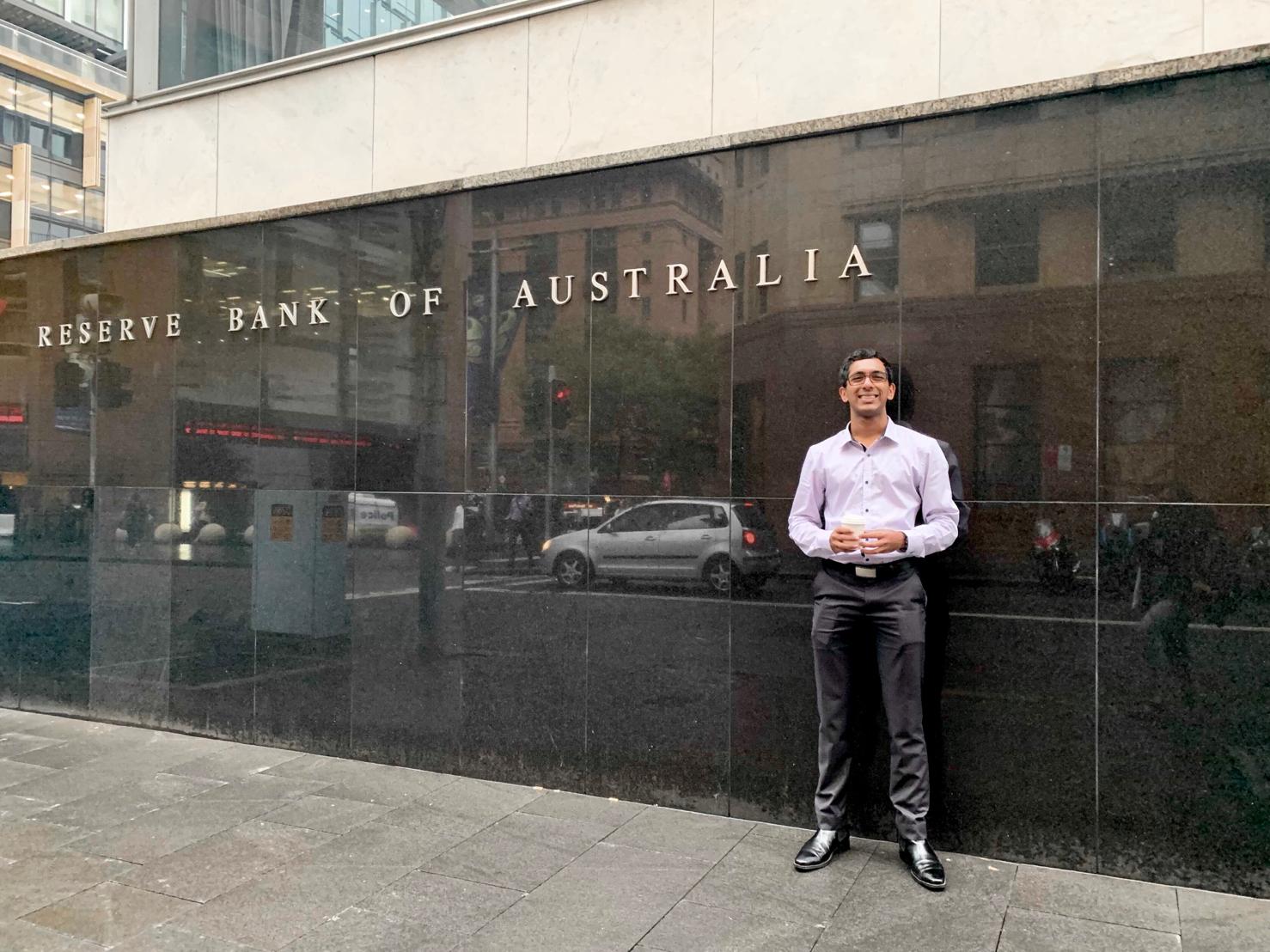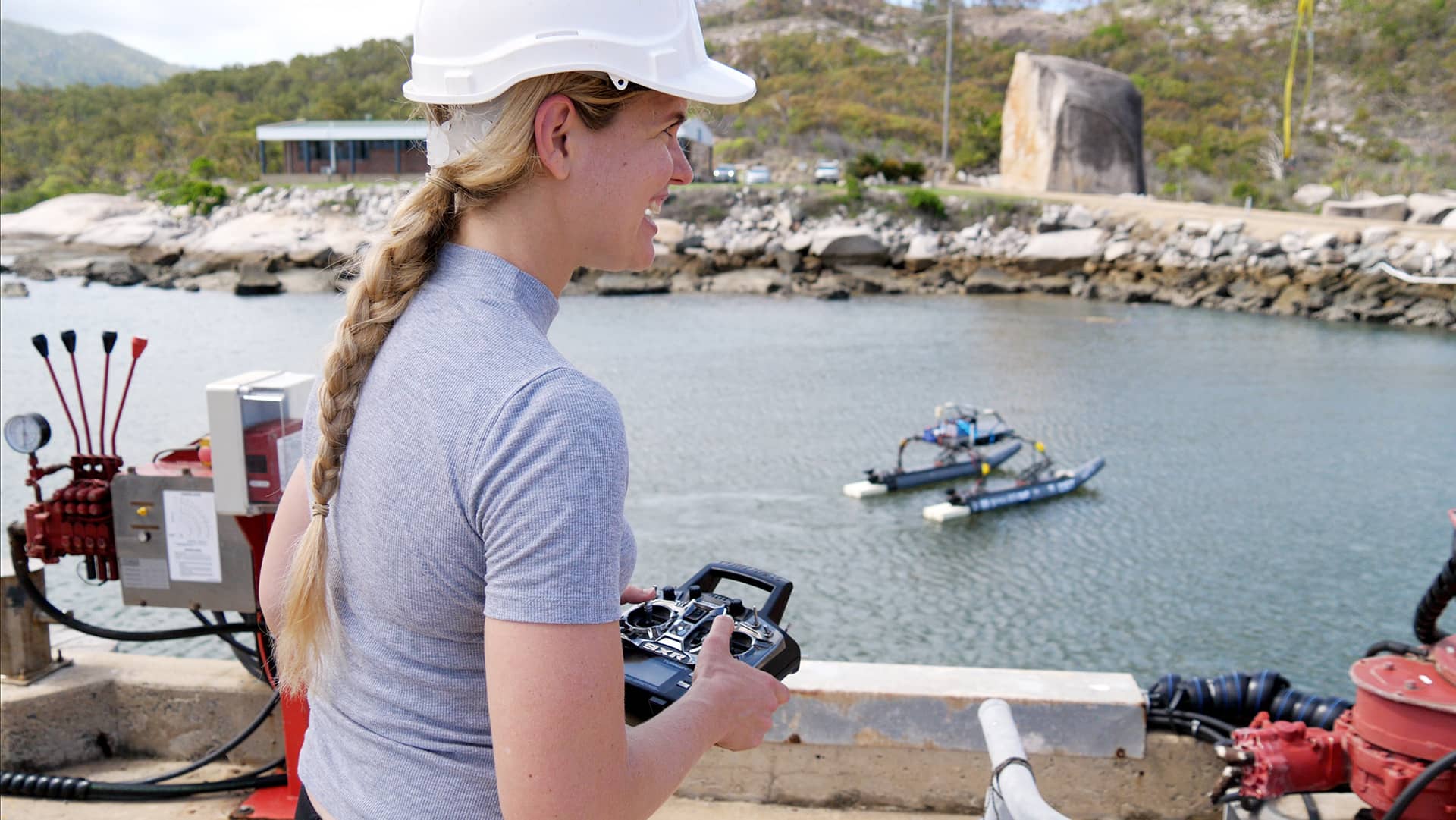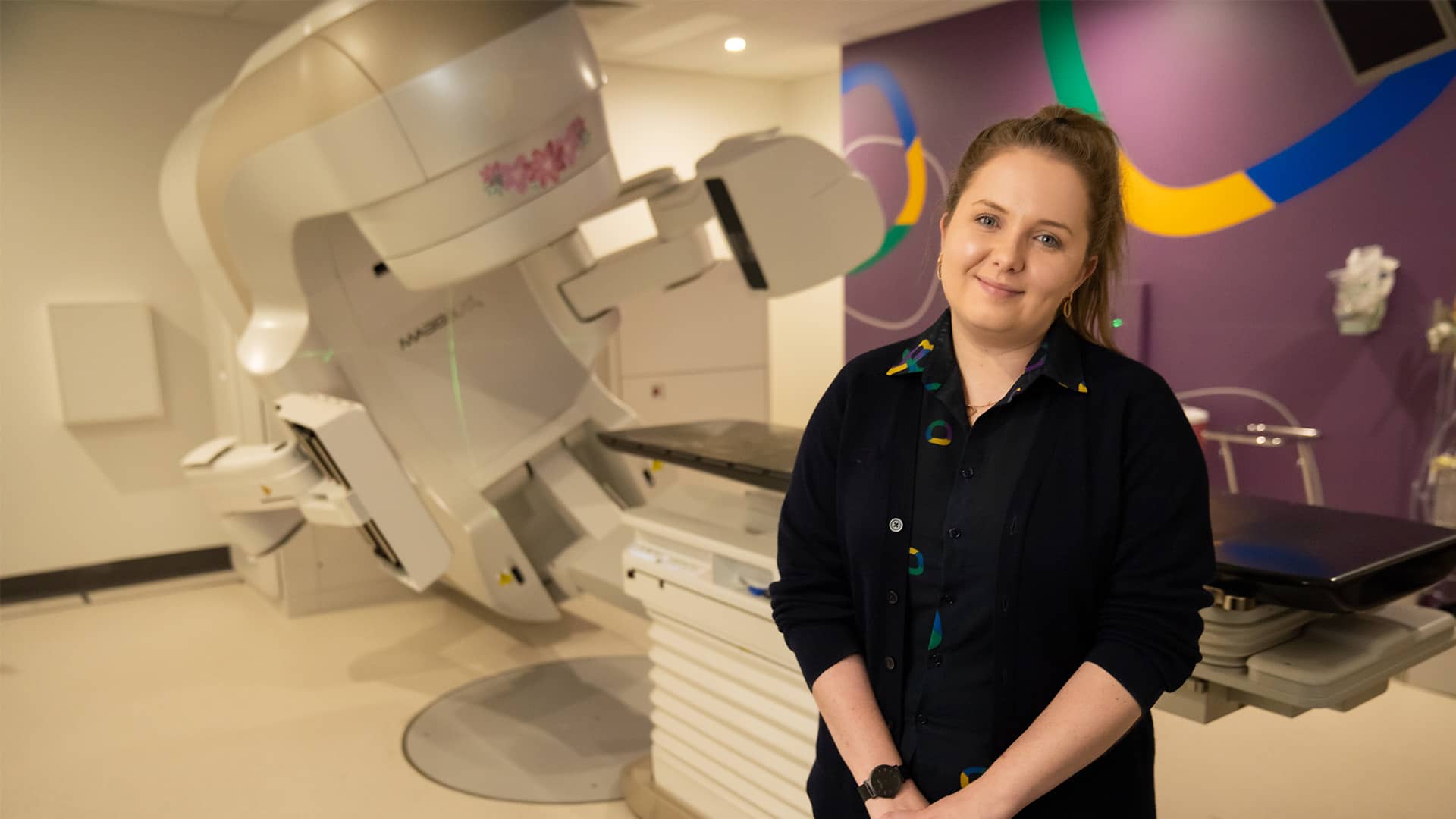Q&A - Student experiences
Hear from JCU Alumni from various study areas on why they chose to pursue their chosen path, and get a look at what your career could look like with a JCU degree.
JCU Alumni Siddarth Roche completed a Bachelor of Business majoring in Economics and Financial Management (majors now offered in the Bachelor of Commerce). In his third year, Siddarth completed an internship at the Reserve Bank of Australia and was invited to join their graduate program after he completed his Honours. As a Graduate Economist at the Reserve Bank of Australia, Siddarth explores and analyses the economy of the entire country.

Q: When did you know that you wanted to study economics and finance?
When I was a kid, I developed the perfect business model in the eraser industry. My parents would buy me erasers and then I would sell them right back to my parents. My free supplier was also my buyer. So, I guess you could say I’ve always had a passion for understanding markets, innovation and entrepreneurship.
Q: What was the highlight of studying finance at JCU?
I really enjoyed being in a smaller university where people know you by name. In a class of 20 people compared to 200 people, you have much more one-on-one time with your lecturer. I love asking questions, so I was able to spend a lot of time with lecturers and tutors getting detailed answers to some of my really obscure queries.
Q: How did your study at JCU prepare you for your career?
Having the opportunity to conduct a pioneering Honours research project while working closely with academic staff for a year was fantastic as well as important for enhancing my skill set. The project instilled in me an immense respect for the rigour and discipline that research requires. I also learned how to work flexibly, which is a vital skill. Overall, the personal approach to education as well as the flexibility and discipline that I gained during my time at JCU have really prepared me for my current role.
Q: What do you do at the Reserve Bank of Australia?
As a Graduate Economist at the Reserve Bank, I rotate through several teams within the bank. I am currently working as an analyst in the Note Issue team. In my role, I get to undertake research projects into the future of cash in Australia and what that may look like. I perform a lot of data analysis on cash distribution and cash demand. In each of the teams I’ve worked with, I’ve had a good chance to break economic problems down to their working parts, think creatively, and then apply my learnings to policy.
Q: What excites you about the future of your career?
I think innovations in digital technologies are going to have a significant impact on the economy. I’m looking forward to understanding — and possibly even shaping — the coming changes within Australia’s economic landscape.
Growing up in rural El Arish, Melanie Olsen wasn’t sure what she wanted to pursue at university. When a JCU Engineering professor visited her high school showcasing what was on offer at JCU, Melanie’s passion was sparked. With a career that has spanned from the Australian Defence Force to protecting marine life through systems engineering, Melanie has truly found her dream job.

Q: Why did you pursue engineering at JCU?
In El Arish, I went to a regional high school and there was no university nearby. Dr Peter Grabau, an Adjunct Senior Lecturer in JCU Engineering, visited our school and did an introductory session on engineering at JCU. He had this really cool quadcopter, and it was in the year 2000, way before quadcopters were common. He said that they work with robotics like this in JCU Engineering. I liked maths and physics, so I thought that was so awesome. I applied to JCU with engineering as my first preference and the rest is history.
Q: What were some of the highlights from your time at JCU?
The support staff were amazing. Being at university felt like a home away from home. When I needed help, they were there. The extracurricular support activities were really well done, too. Another highlight is that because JCU Townsville is in a regional area and I’m from a regional area, I felt like I was really well-equipped to handle the challenges that are faced in these regions. My family didn’t have a lot of finances to dedicate to my studies so it was helpful that JCU has great scholarships that I could work really hard for that assisted me in getting through university. Between the financial support and the emotional and study support, the challenge of university study greatly lessened.
Q: What has your career looked like since completing your degree?
Straight after I finished studying computer systems engineering in 2006, I went into the Defence Material Organisation in Canberra. I had no idea what to expect, but I learned about all sorts of amazing defence capabilities such as over the horizon radar, electronic warfare, and fitting out ships’ radar systems. I was really impassioned by electronic warfare and did my Masters degree in electronic engineering and became a specialist in the area, helping equip our future Navy for the challenges they might face. I worked with leading Australian and international researchers, spending a lot of time in the USA, from Boston to Atlanta and Washington.
After a while, I wanted a career change and saw an opening for a technology team leader at the Australian Institute of Marine Science (AIMS), which is based just south of Townsville. I joined the AIMS team, helping them integrate new technologies for protecting the Great Barrier Reef and further enabling our researchers. I now lead Australia’s tropical marine technology test range here in Townsville.
Q: How did your time at JCU equip you for the career that you’ve led?
JCU really prepared me for being quite solutions and technology agnostic. I developed these core problem-solving skills that allow me to jump up and go anywhere and apply them. Even though I moved from defence to protecting marine life and promoting oceanography, the same skill set applied there, so I could just hit the ground running. The broad and varied range of teaching at JCU also gave me the knowledge I needed to work in not just an evolving career, but an evolving industry. One day I could be working on robotics and the next I’ll be looking at hyperspectral sensing data. JCU equipped me with an approach to systems that can apply in any context.
JCU Alumni Tegan Stark has a long family connection with JCU and knew she wanted to study there. When her time came, it was pharmacy that sparked her passion. Now working as a specialised pharmacist in oncology, Tegan gets to make a difference in the lives of her patients every day.

Q: How did you know that you wanted to study pharmacy at JCU?
My grandfather helped set up JCU and my parents actually met while lining up for their student cards when they started at the Uni. I always knew I would go to JCU, I just didn’t know what I would do. In high school I realised my passion for science and desire to help people. That seemed to match up with pharmacy and I thought, “Yep, that sounds right to me”. Pharmacy was my first preference and as soon as I started, I knew it was exactly the right choice for me!
Q: What was the highlight of your time at JCU?
Doing the pharmacy degree was an awesome experience, especially the placements. The support was amazing and by the time I started going on placements, I felt ready to take on my career.
Q: What has your career looked like since completing your degree?
After finishing my degree, I moved back to Mackay for my intern year at a pharmacy that I had done placement with. From there, my career took me to the Sunshine Coast, Townsville, out west and back to Mackay. I moved into management positions and went back to JCU to do my Master of Pharmaceutical Public Health, which has been a great experience.
I now also sit on the Pharmaceutical Society of Australia’s Queensland branch committee, allowing me to advocate for the profession. I was one of the first pharmacists to be trained as an immuniser, which is not only a very cool clinical skill but has also extended my scope of practice.
Q: What is it like working as an oncology pharmacist?
I’ve loved where my career has taken me, especially now, as I’ve been working as the pharmacy team leader at the Icon Cancer Centre in Mackay for twelve months. It was always a personal and professional goal for me to one day work in a hospital setting and specialise in oncology.
It’s amazing to be here. Our patients go from diagnosis through treatment, so we aim to ensure their treatment protocol is right for them and that the process is as simple as possible. I do clinical screening, coordinate with oncologists and nurses, ensure chemotherapy and charts are delivered on time and that patients have all the medication they need to go home with.
I’m now stepping into the oncology pharmacist role. It’s been a steep learning curve, but I was ready for that because of my strong foundation through study and the experience I’ve gained throughout my career.